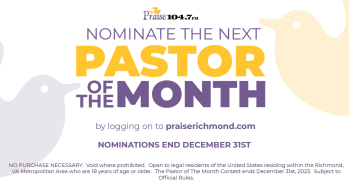The highest holy day of the year for Christians is a mere three days away. Christians will rightfully celebrate God’s sacrifice in the death of his Son on a ghastly cross. We will remember his death reverently and soberly.
But we also will rejoice in the remembrance of his resurrection and his victory over evil and death. We will give thanks that he is our personal Savior and Lord.
Luke 24:46-48 references some of Jesus’ final words to His disciples after His resurrection: “He told them, ‘This is what is written: The Christ will suffer and rise from the dead on the third day, and repentance and forgiveness of sins will be preached in His name to all nations, beginning at Jerusalem. You are witnesses of these things'” (NIV).
Twenty-first-century believers often struggle with what we will do with the powerful truth of the resurrection once the spiritual high of Easter is behind us. How do we live out our faith in such a way that we are faithful witnesses of the things of God? Do Jesus’ words suggest that we merely all become preachers and evangelists and spend every moment preaching repentance and forgiveness of sins?
The life of Jesus gives us the best example of one who not only grasped the message of God but also demonstrated the love of God to humankind. In the days after Pentecost, people from all over were coming to faith in Christ by the thousands. By all indications, they were responding to the powerful preaching of the disciples. But they also were moved by religious people who did not look down on others but who shared possessions, such as food, and experiences like prayer and worship.
Among religious types — those earliest Christians were a novelty — just like Jesus, an obvious one of a kind.
This year, Easter is being celebrated in communities that have been turned upside down and destroyed by recent disasters — places like Haiti, Chile, Turkey and China. In all of these places, outsiders have reached out in compassion with various kinds of aid, much of it delivered in person. On lesser scales, more and more churches and their members are living out their faith with compassionate ministries in their own neighborhoods or across town.
More than 25 years ago I was assigned to do a story about a ministry to children and their families in the impoverished mountain communities of southeast Kentucky. A young woman from this isolated area guided the ministry, called Love in Action. She dodged coal trucks on narrow mountain roads to reach nooks and crannies containing people wary of outsiders. Over time, they had seen love in action — and many had opened up to the hearing of the gospel.











